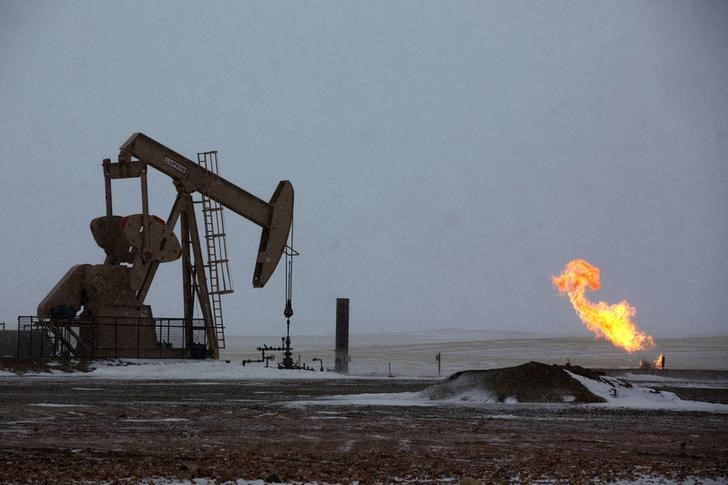Stock market today: S&P 500 extends monthly win streak despite Nvidia-led stumble
TOKYO, March 12 (Reuters) - Oil prices fell again on
Thursday, adding to steep losses in the previous session after
the U.S. banned travel from Europe following a declaration that
the coronavirus outbreak is now a pandemic.
The threat of a flood of cheap supply compounded market
concerns as Saudi Arabia promised to raise oil output to a
record high in a standoff with Russia.
Brent crude LCOc1 was trading down $1.03, or 2.9%, at
$$34.76 by around 0130 GMT having switched in and out of
positive territory before the U.S. announcement. The contract
fell nearly 4% on Thursday.
U.S. crude CLc1 was down $1.13, or 3.4%, at $31.85 after
dropping 4% in the previous session.
The United Arab Emirates followed Saudi Arabia in announcing
plans to boost oil output after the collapse last week of an
agreement between OPEC, Russia and other producers, a grouping
known as OPEC+, to withhold supply and buttress prices.
UAE's national oil company, ADNOC, said it plans to raise
crude sales to more than 4 million barrels per day (bpd) and
accelerate a push to boost capacity by a quarter to 5 million
bpd. The push comes as the coronavirus outbreak spreads around
the world at a rapid rate, prompting countries from Italy to
Iran to take ever more drastic measures like lockdowns to
control the spread. U.S. President Donald Trump late on
Wednesday U.S. time announced a ban travellers from Europe. [
"Without OPEC+, the global oil market has lost its regulator
and now only market mechanisms can dictate the balance between
supply and demand," said Espen Erlingsen, head of upstream
research at Rystad Energy, which estimates that oil will need to
fall to the low $20s to achieve equilibrium.
The U.S. Energy Information Administration (EIA) and the
Organization of the Petroleum Exporting Countries (OPEC) have
slashed forecasts for oil demand because of the coronavirus
outbreak and now expect demand to contract this quarter.
Weekly data on U.S. inventories showed minimal effects from
the coronavirus pandemic. Crude stocks increased by 7.7 million
barrels, but inventories of gasoline and diesel fell sharply, as
refining runs remain at seasonally low levels. EIA/S
